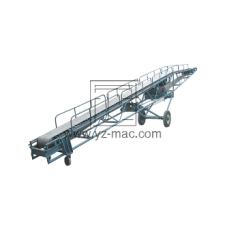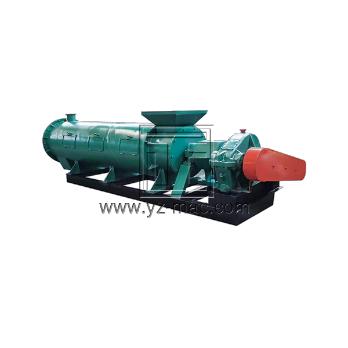Industrial composter for sale
An industrial composter is a robust and high-capacity machine designed to process large volumes of organic waste efficiently.
Benefits of an Industrial Composter:
Efficient Waste Processing: An industrial composter can handle significant quantities of organic waste, such as food waste, yard trimmings, agricultural residues, and organic byproducts from industries. It efficiently converts this waste into compost, reducing waste volume and minimizing the need for landfill disposal.
Reduced Environmental Impact: By diverting organic waste from landfills, industrial composters contribute to reducing greenhouse gas emissions. The composting process converts organic waste into nutrient-rich compost, which can be used as a sustainable soil amendment, minimizing the need for chemical fertilizers and promoting environmental sustainability.
Cost Savings: Industrial composters offer long-term cost savings by reducing waste disposal expenses. Instead of paying for waste hauling and landfill fees, businesses can process their organic waste on-site, converting it into a valuable resource that can be used or sold as compost.
Compliance with Waste Regulations: Industrial composting helps businesses comply with waste management regulations and sustainability goals. It promotes responsible waste handling, demonstrates environmental stewardship, and aligns with waste reduction and recycling initiatives.
Key Features to Consider:
Capacity and Throughput: Assess your waste generation volume to determine the required capacity and throughput of the industrial composter. Choose a machine that can handle your waste volume effectively, ensuring continuous operation and optimal composting efficiency.
Process Automation: Look for industrial composters with advanced automation features, such as programmable controls, monitoring systems, and data logging. These features streamline operation, allow for efficient process management, and facilitate quality control.
Durability and Maintenance: Industrial composters should be built with sturdy materials capable of withstanding heavy-duty operations. Consider the ease of maintenance, access to key components, and availability of spare parts to ensure smooth operation and longevity.
Odor Control: Industrial composters should include odor control mechanisms, such as biofilters or activated carbon filters, to minimize odor emissions during the composting process. This helps maintain a pleasant working environment and prevents potential odor-related complaints.
Applications of Industrial Composters:
Food Processing and Manufacturing: Industrial composters are suitable for food processing plants and manufacturing facilities that generate a substantial amount of food waste. These machines efficiently convert food waste into compost, reducing waste disposal costs and promoting sustainable waste management practices.
Municipal Waste Management: Industrial composters are utilized in municipal waste management systems, allowing municipalities to process organic waste from residential, commercial, and institutional sources. This enables the diversion of organic waste from landfills, reducing waste volume and supporting a circular economy.
Agricultural and Farming Operations: Industrial composters find applications in large-scale agricultural and farming operations. They process agricultural residues, livestock manure, and crop waste, transforming them into nutrient-rich compost that can be used to improve soil fertility, enhance crop yields, and promote sustainable agricultural practices.
Composting Facilities and Waste Management Companies: Industrial composters are essential in composting facilities and waste management companies that specialize in organic waste processing. These machines handle diverse waste streams, ensuring efficient composting and the production of high-quality compost for various end-users.
Investing in an industrial composter for sale offers numerous benefits, including efficient waste processing, reduced environmental impact, cost savings, and compliance with waste management regulations. When purchasing an industrial composter, consider factors such as capacity, process automation, durability, maintenance requirements, and odor control features. Industrial composters have applications in food processing, municipal waste management, agriculture, and composting facilities, providing sustainable solutions for effective waste management.






